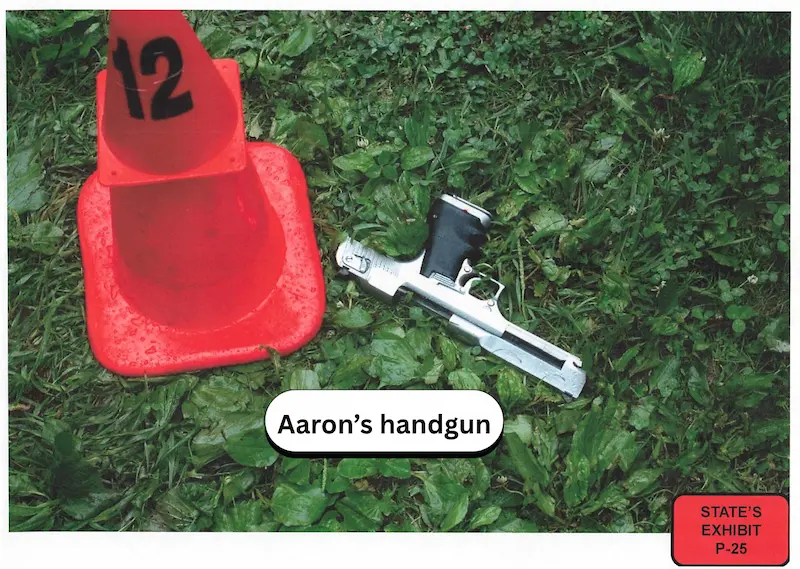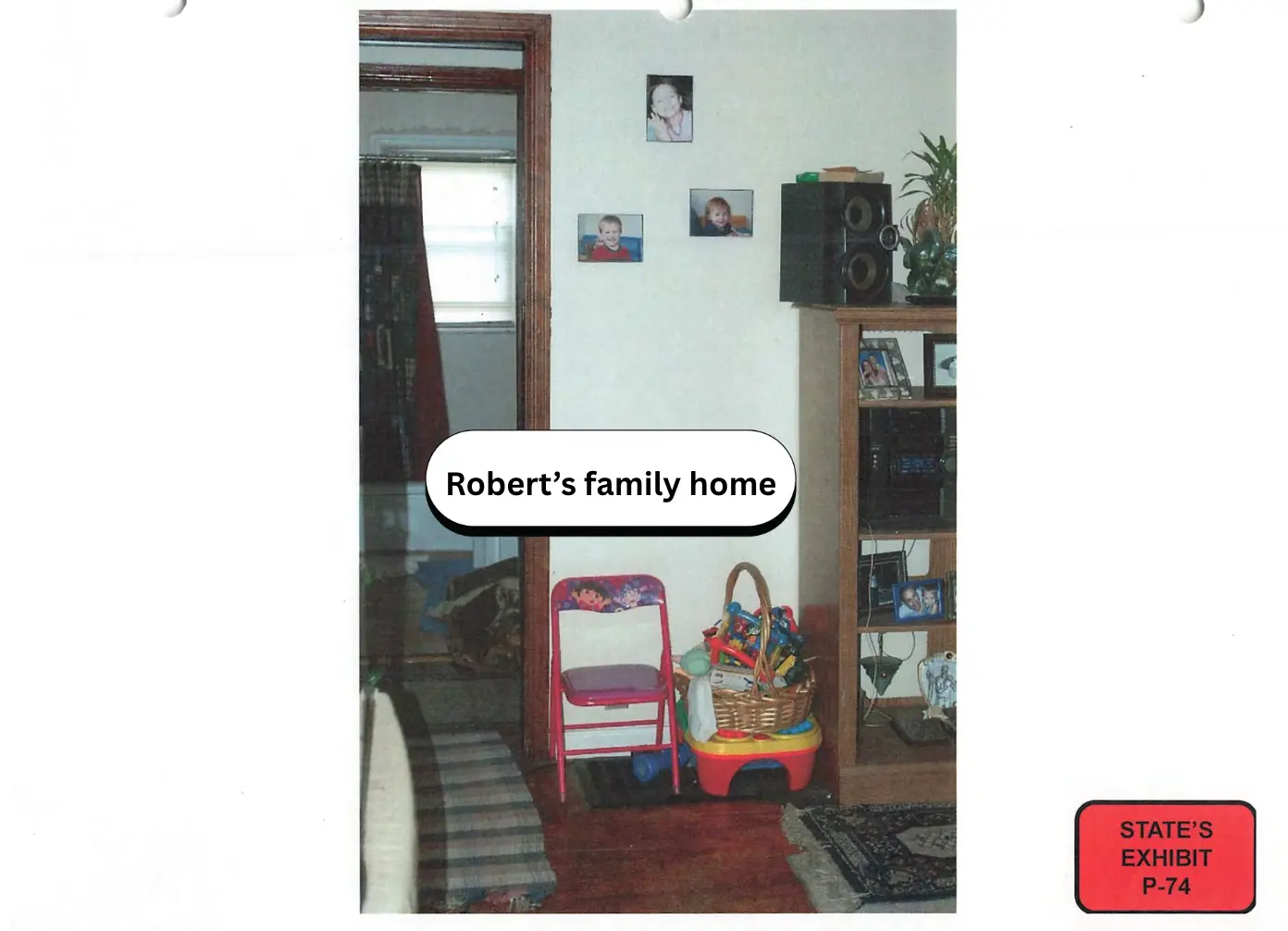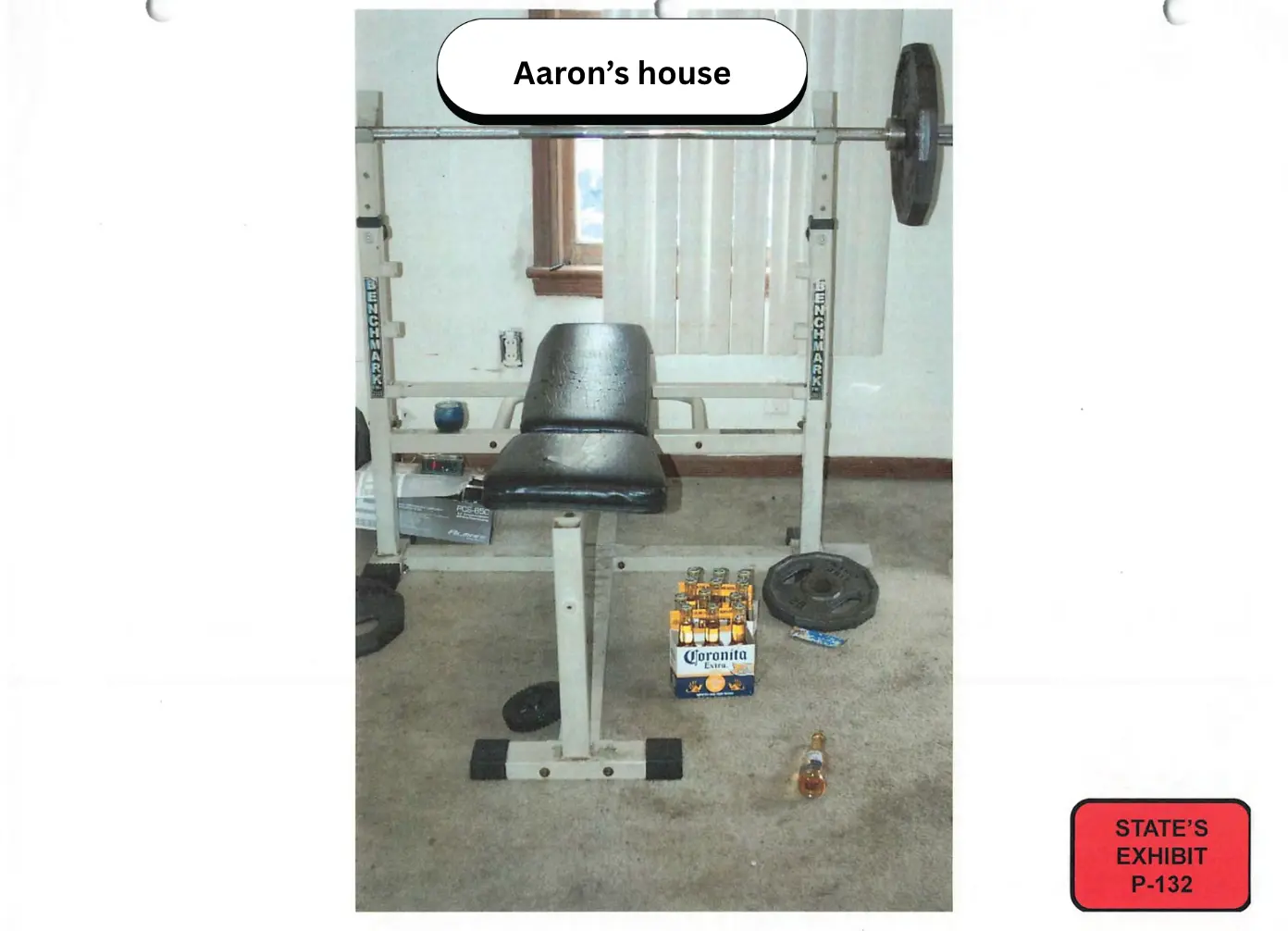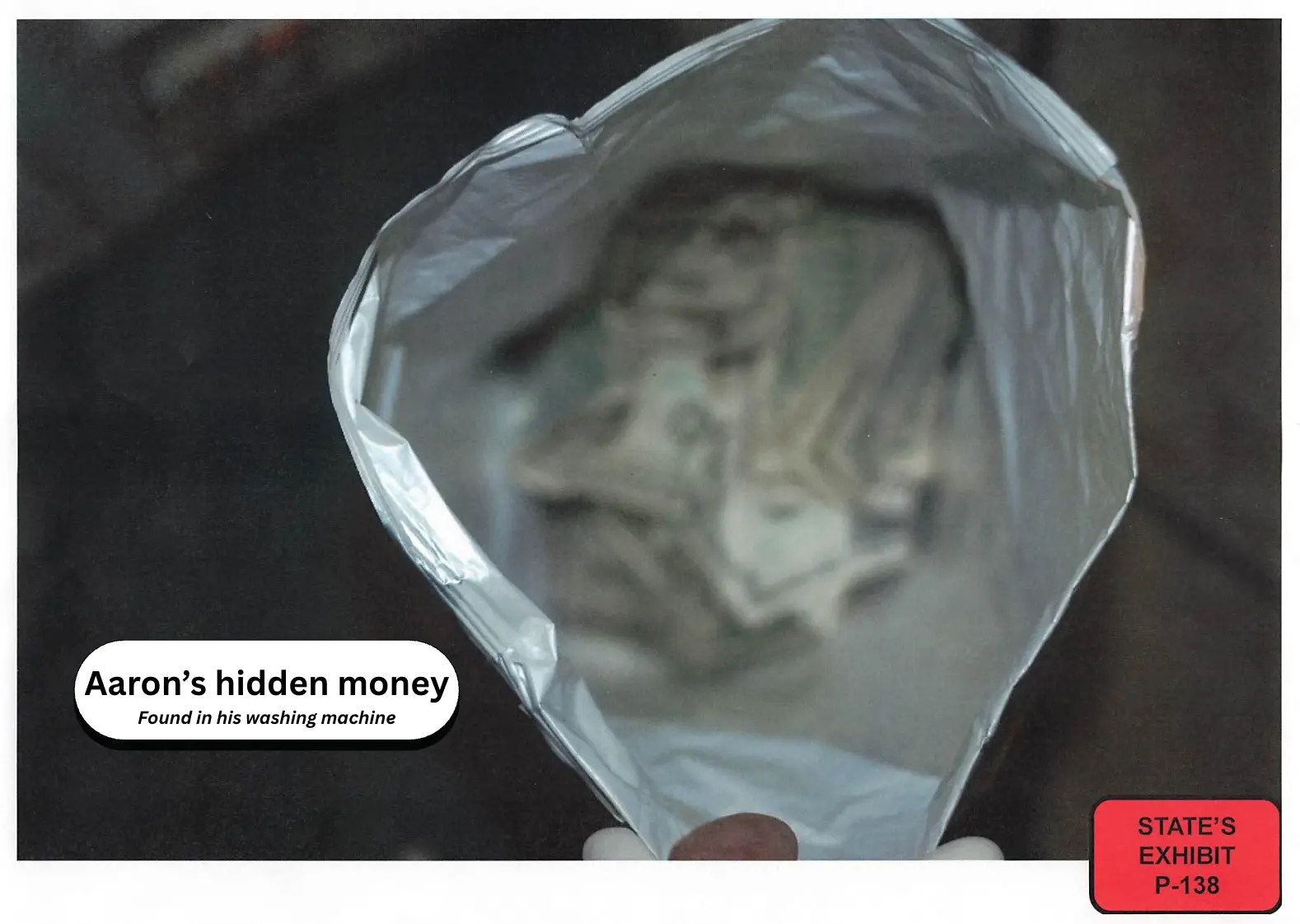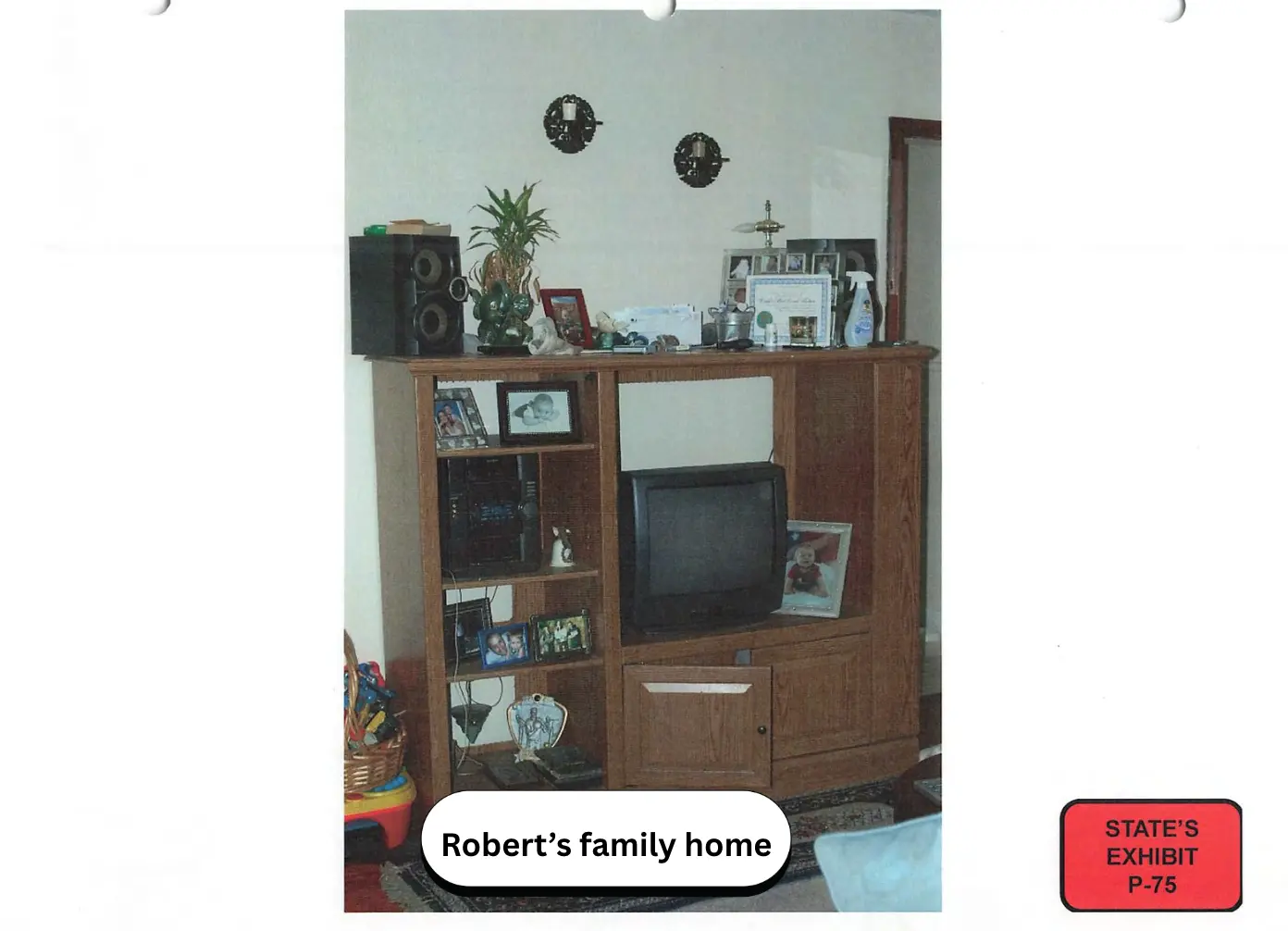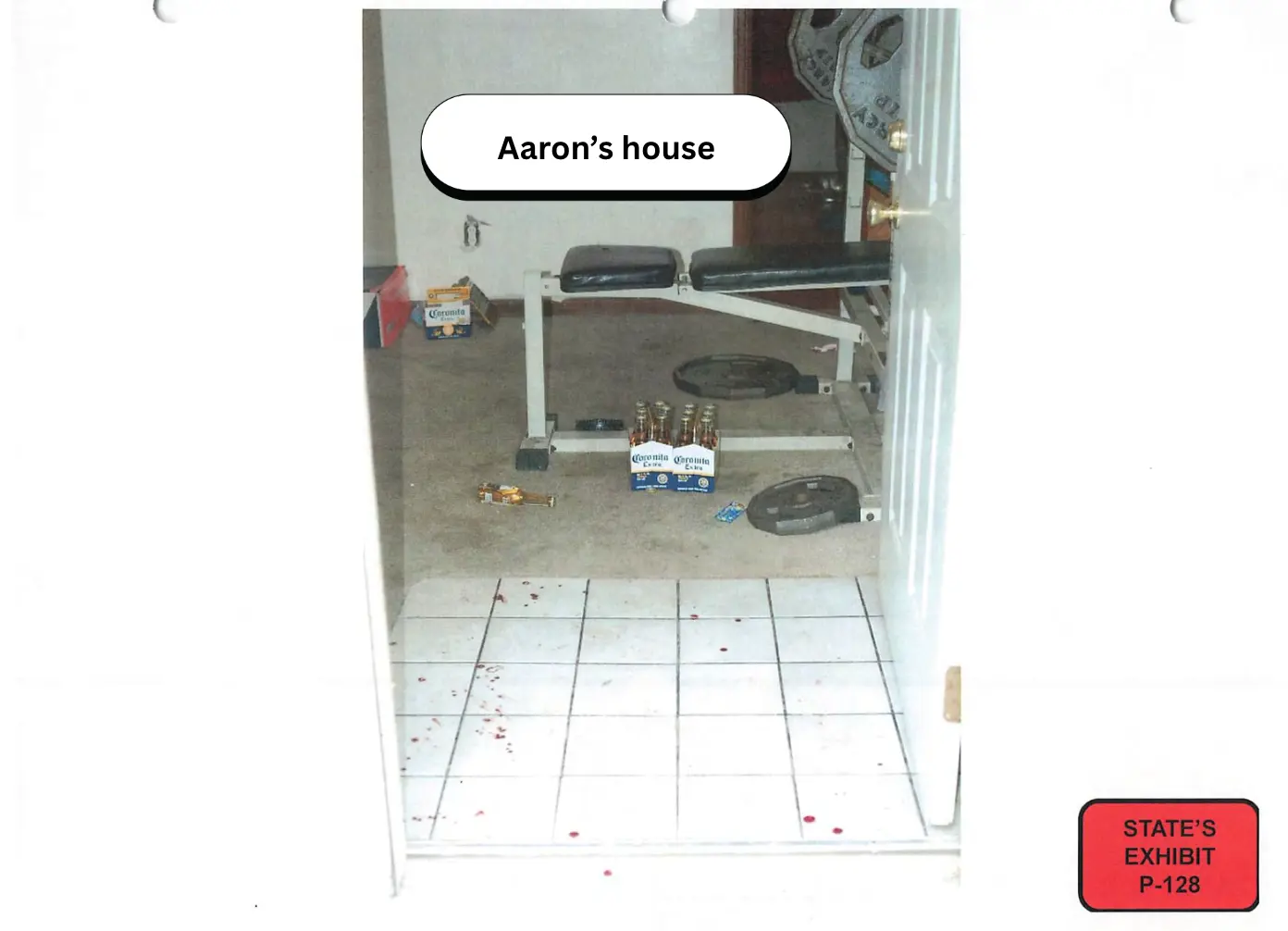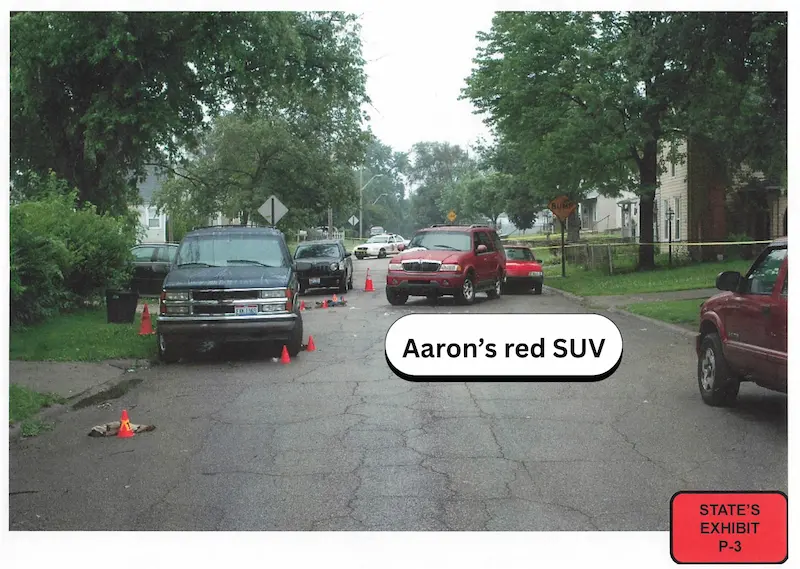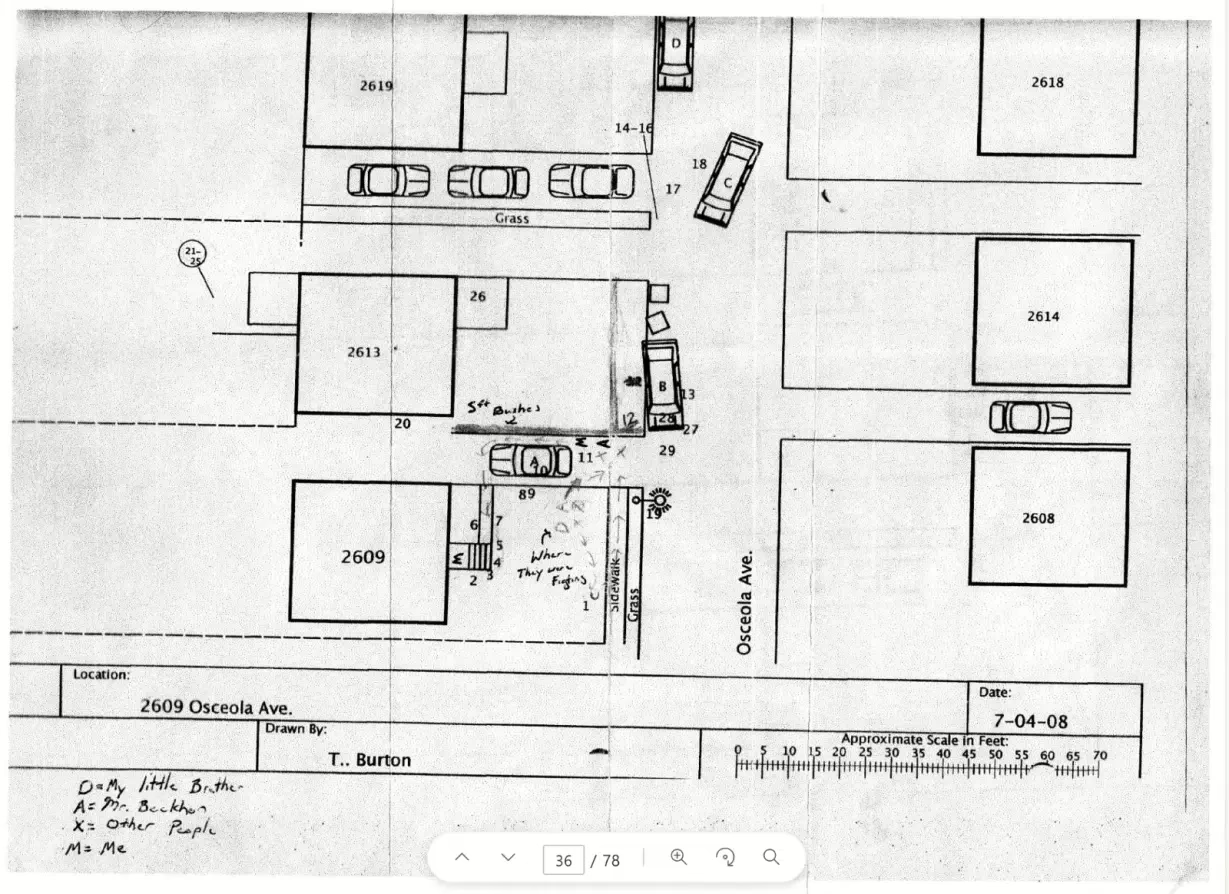Explore the Evidence. Hear Their Voices.
911 Calls From the Night of the Incident
Listen to the Calls:
911 Call #1 – The Shooting
“Somebody’s been shot. Please hurry.”
911 Call #2 – Additional Witness
“Two people have been shot down there.”
911 Call #3 – Threats Revealed (IMPORTANT)
“They threatened us a month ago — they said they’d kill us.”
911 Call #4 – Final Witness Statement
“Who's Trying to Leave? - The people who did the shooting”
Explore Supporting Documents
Letters of Support
Testimonies from Those Who Were There
I had the privilege of being Robert's partner from middle school, until the justice system pulled our family apart. Robert was not just my partner; he was my family, my best friend, and the father of our four children. The events that transpired nearly 17 years ago not only shattered his life but destroyed mine as well, leaving a wake of trauma that our family continues to navigate to this day.
The night of July 4th, 2008, should never have unfolded the way it did. About a month prior, my cousin Kristy Coleburn and her partner Brian were targeted by Aaron Beckon. In full view of Robert, his family, and me, Aaron exited his property and opened fire on their vehicle during an argument. Despite a police report being filed, nothing came of it, and it left us all living in fear of what he might do next. That fear came to a head on July 4th when Aaron escalated again, this time pulling a gun on Robert and his little brother.
Robert, desperate to protect his family and those present, retrieved a gun from inside the house in self-defense, fearing that someone would be seriously hurt.
I was there that night, pregnant, young, and terrified. I wish I had the strength and clarity to tell the truth to the authorities, but fear drove me to say the shootings were caused by a group of black boys passing by. That lie haunts me to this day because it contributed to an outcome where Aaron Beckon, a man who has terrorized so many, walked free, while Robert, a man who acted only to protect, remains behind bars.
Aaron's violent behavior did not end there. Shortly after Robert's arrest, mere days later, Aaron hunted me down in broad daylight while I was driving with a pregnant friend. He rammed my car into oncoming traffic and shot at us as we tried to flee. This attack, fully documented with evidence, also resulted in no punishment for Aaron. I have personally witnessed Aaron shoot at five people, including myself, and I can only imagine how many other incidents remain undocumented. Meanwhile, Robert—a man with a spotless institutional record over the last decade or so and a clear capacity for rehabilitation—has paid a price far beyond what is just or fair.
Robert's incarceration has devastated his family. Our children have had to grow up without their father present, bonding only through prison visits, letters, and phone calls. I cannot begin to describe the pain of co-parenting through such a barrier. Our children were robbed of the father they needed, and I lost the partner I once planned to spend my life with. The trauma of these events haunt me to this day and I still live in great fear of seeing Aaron Beckhon.
It is also important to highlight the failings of Robert's legal representation. His lawyer at the time, who was permanently disbarred shortly after the trial, failed to provide the defense he deserved. Robert was convicted under the felony murder rule, a law that ironically should implicate Aaron Beckon, as Aaron was the only individual truly committing a felony that night.
Robert has spent nearly 17 years in prison, a time during which he has proven himself to be a man of integrity, growth, and discipline. His institutional record reflects the man he truly is—someone who does not belong behind bars. He has taken responsibility for his actions, but the punishment does not fit the circumstances of what occurred.
This situation cries out for justice. The system has failed Robert, our family, and even society by allowing a dangerous individual like Aaron Beckon to remain free while Robert remains incarcerated. Clemency for Robert is not only an act of mercy but a necessary correction to a grave injustice.
I urge you to consider this plea for clemency, not just for Robert but for the family who loves him, our children who need him, and the justice that has been long denied.
I am writing to express my deepest support for clemency for my brother, Robert. Robert has been more than just a brother to me; from a young age, he stepped in as a father figure, mentor, and my closest friend. Growing up in a household where our parents struggled with addiction, Robert was the one who took care of us, ensuring that we were never hungry or without guidance. Since the age of seven, he worked tirelessly to support our family, making sure that my siblings and I never went without. During my most difficult times, Robert provided the emotional and financial support that helped shape the man I am today.
Robert's selflessness is unmatched. He sacrificed his own freedom to save my life, a testament to the kind of person he is—a man who consistently puts others before himself. Despite the distance and his current situation, Robert continues to be a positive influence on me and our family. His intelligence, kindness, and deep sense of responsibility have always shone through, even in the darkest of times.
On the evening of July 4, 2008, just before my 17th birthday, I was celebrating with my girlfriend, older sister, and her boyfriend by watching the Red, White, and Boom fireworks display. When we returned home, we noticed our neighbor, Aaron Beckon, hosting a rowdy Fourth of July party. Aaron was known in our community for his involvement with weapons and drugs, and our mother had warned us to keep our distance after a violent incident a month earlier.
As we pulled into the driveway, one of Aaron's friends, Chad Wolford, began behaving erratically, accusing us of running over someone's foot—a claim that was impossible due to a hedge separating our properties. My sister's boyfriend was driving, and when Chad began hurling insults at him, my sister stood up for him. Chad then walked up to our car and punched my sister in the face. A physical altercation ensued between Chad, my sister, her boyfriend, and I. Chad appeared to be under the influence of substances, and the fight was quickly broken up by Aaron.
Meanwhile, my mother called Robert, who was nearby, enjoying a quiet evening with his partner and co-worker. Robert, who has always taken on a protective role, rushed over immediately after hearing that we were being assaulted by our violent neighbor. When he arrived, he fired warning shots into the air unnecessarily—a common, yet regrettable, practice in that neighborhood to scare people away. Unfortunately, this only escalated the situation, as the intoxicated party members returned to our property, shouting and threatening us.
While inside we explained what had happened and the men outside continued to yell. Robert opened the front door and demanded to know who had hit our sister. When Chad admitted to the assault, Robert went outside to confront him. At that moment, Aaron emerged from the hedges with a gun, pointing it at Robert. My mother and I went outside where I was physically attacked by Chad Wolford and Chris Starr. My mother intervened between Robert and Aaron, pushing Robert back while Aaron redirected the gun toward me. To this day, nothing has traumatised me as much as that moment as I lay helplessly on the ground while two grown men beat me and another had a gun pointing to my face.
Robert has told me, in fearing for my life, he ran inside to retrieve the gun. When he returned, he acted quickly, believing that he needed to protect us from imminent danger as Chad was shouting at Aaron to "shoot him." Tragically, this confrontation resulted in the loss of life—a moment that has haunted our family ever since.
Robert never intended to harm anyone; that is not his character, then or now. He was acting in what he believed was self-defense, a right protected by our Constitution. However, he was denied a fair trial, particularly when his lawyer, Christopher Cicero, was fired months before the trial, due to concerns about his competence. After expressing this concern, Robert was kept in isolation at Franklin County Jail, deprived of phone access, and prevented from seeking help. During the trial, his lawyer offered no defense, failed to call any witnesses, and locked our family out of the courtroom, preventing us from testifying on Robert's behalf. By this stage my brother had been locked up for nearly 1.5 years and had been kept from seeing and speaking to his children, he was a broken man.
Moreover, Cicero had personal connections with all the men involved in the assault against me. None of them faced charges, despite their violent behavior and our family telling the police of such events. Cicero was later disbarred and disgraced, yet the damage to Robert's case was done. Ohio is a Stand-Your-Ground state now and the Castle Doctrine, was in effect at the time, should have protected Robert, but due to poor counsel and judicial errors, he was wrongfully blamed and denied the opportunity to defend himself correctly. The only witnesses in the trial were connections of the so-called victims—people who were deeply involved in a dangerous lifestyle. My brother acted out of a genuine fear for our safety, yet his voice was silenced throughout the proceedings. If the judge or jury had the chance to hear him speak they would of understood this.
I deeply regret not being able to support Robert as much as he has supported me. As I have held myself personally responsible for ripping him from his children and society. This anguish has caused me to shut down and be overcome with emotion whenever my brother enters my thoughts. The pain of hearing his voice from behind prison walls is overwhelming, but it only stresses how much I miss and admire him. Robert is not only an incredible brother but also a devoted father who deserves the chance to be there for his children and family. Granting clemency to Robert would reunite our family and allow a genuinely good man to contribute positively to society, as I know he will.
I humbly ask you to grant my brother his freedom.
I am writing this letter to wholeheartedly advocate for Robert 'Robby' Ruark's clemency. My lifelong connection with Robby allows me to attest to his remarkable transformation and unwavering dedication to personal growth.
Robby created a family with my older sister and was arrested when I was about 12 years old. As a loving father and a devoted family man, he was also my best friend. I loved him dearly, and it broke my heart when he was sent away. Robby was never known to be a violent person; he deeply loved his family, and I firmly believe that his actions that night were defensive in nature, driven by a desire to protect his loved ones from harm.
I was there on the evening of July 4th when Robby was arrested. I had spent that evening with him, my sister, and some female family friends before Robby was called away by his mother due to an altercation at her home. While I don't recall all the details of that evening, I vividly remember a darker-skinned man pulling a gun and pointing it at Robby, who did not have a weapon at the time. Overwhelmed with fear, a female family friend and I ran to the basement to hide until the police arrived and escorted us all out.
After the incident, the police questioned me while I sat in their car. I was so traumatized that I cannot recall what they asked; I was simply too frightened to speak. My mother soon came to take me home, and I was never brought to the police station. I attended one court hearing but was never called to testify. It is deeply unjust that not a single defense witness was allowed to give testimony during Robby's trial—not even Robby himself. Several witnesses, myself included, could have spoken to the events of that night, but our voices were silenced. Robby was failed by his legal representation, which was later deemed incompetent, leading to the disbarment of his attorney. Why should Robby have to suffer because of others' mistakes?
I have witnessed the devastating impact of his incarceration on my sister and on my nieces and nephews, who grew up without their father. However, I have also seen the incredible evolution of Robby's character. His journey from a middle-school dropout to a man determined to better himself is nothing short of inspiring. He has earned an associate's degree and is pursuing a bachelor's degree, demonstrating his commitment to intellectual growth. His active participation in the dog program, which fosters responsibility and empathy, further reflects his willingness to engage in meaningful, rehabilitative activities.
While acknowledging the gravity of the past, it is essential to recognize the significant steps Robby has taken since. Granting him clemency would not only allow him to continue his path of reform but also serve as a powerful testament to the value of rehabilitation and second chances. Robby is deeply loved and supported by a network of family and friends who are eager to help him reintegrate into society and lead a positive, impactful life.
Thank you for considering Robby's case with empathy and fairness. His release would not only benefit him but also the community, as he has so much to contribute.
I am the mother of Robert Ruark. I am submitting this testimony to share the events that occurred on July 4, 2008, as I witnessed them, and to plead for justice and mercy for my son.
That evening, I was home with my daughter, Nicci, and her boyfriend, Richard. I had asked Nicci and Richard to pick up my youngest son, Dylan, from a friend's house where he had been watching fireworks for his 16th birthday. Robert was a few streets away at a colleague's house with his children's mother and her younger sister.
I had warned my children to avoid our neighbor, Aaron Beckhon, as I believed he was a dangerous individual. About a month prior, we had witnessed Aaron open fire into a car outside our property, responding to an argument he wasn't even involved in. That incident terrified me as a single mother with children to protect. The people who were shot at filed a police report, but when no action was taken against Aaron for this shooting, I lived in fear of what he might do next.
When I saw men from Aaron's property outside my home, physically assaulting my children, I panicked. I didn't want any violence, especially gun violence, but I feared for my family's safety. Out of desperation, I called Robert to come help as I knew he would not let any further harm come to his family. I hoped his presence would diffuse the conflict, but I couldn't have imagined how things could escalate.
When Robert arrived, the initial violence had ceased, and everyone had returned to their respective properties. However, in an ill-conceived attempt to stop further violence, Robert fired rounds into the air before entering my home, thinking it would end any further confrontations.
Instead, it reignited tensions. Aaron's group soon returned, yelling and threatening us on our property. When Robert opened the front door and asked who assaulted his sister, someone identified themselves as the individual. Robert then went outside, unarmed, to confront them.
I then witnessed Aaron cross onto my property with a gun, pointing it directly at Robert. My motherly instincts kicked in, and I threw myself between Aaron's gun and my son, trying to deescalate the situation. I yelled at Robert to go inside and pushed him toward the house.
Meanwhile, Dylan had come outside, only to be attacked by two men—Chad Wolford and Christopher Starr—who threw him to the ground and were beating him.
At that moment, I had pushed Robert back into the house, Aaron turned his gun on Dylan. I can only imagine the terror Robert felt seeing his younger brother's life in imminent danger, as that is what I felt. It was then that Robert retreated further into the house, grabbed a gun, and returned, acting out of desperation to protect his family. What followed was a tragedy that has haunted us all, every day. A life was lost, and others were injured, but I firmly believe my son's actions were driven by fear and the need to protect his family from an immediate threat.
The aftermath of that night was equally devastating. The police never interviewed me or other witnesses present, and none of us were called to testify in court. Robert's legal representation failed him at every turn, and his lawyer was later disbarred for negligence. Key evidence and witnesses were ignored. The court never heard about Aaron's history of violence or the danger he posed to us that night.
Since his incarceration, Robert has worked tirelessly to better himself. He has completed numerous programs, mentored others, and is about to earn his bachelor's degree. He is not the same 21-year-old who acted out of fear on that fateful night.
Governor DeWine, I plead with you to show mercy to my son. His children need their father, and our family needs to heal. Robert's 31-year minimum sentence is excessive and unjust, given the circumstances and his lack of fair representation. I ask you to consider reducing his sentence to bringing it in line with similar cases.
Please allow Robert the chance to return to his family and contribute positively to society. We have suffered in silence for 16 years, but today, I hope our voices will finally be heard.

